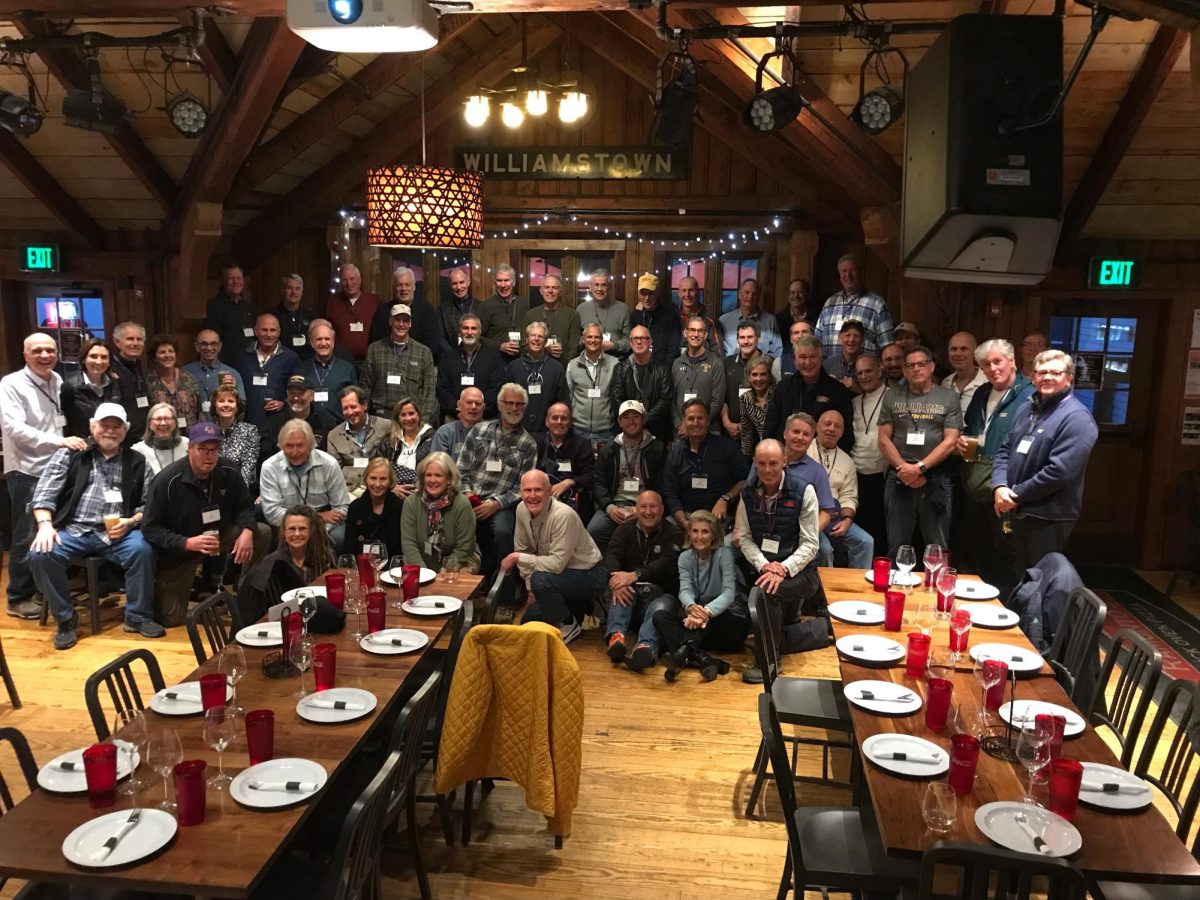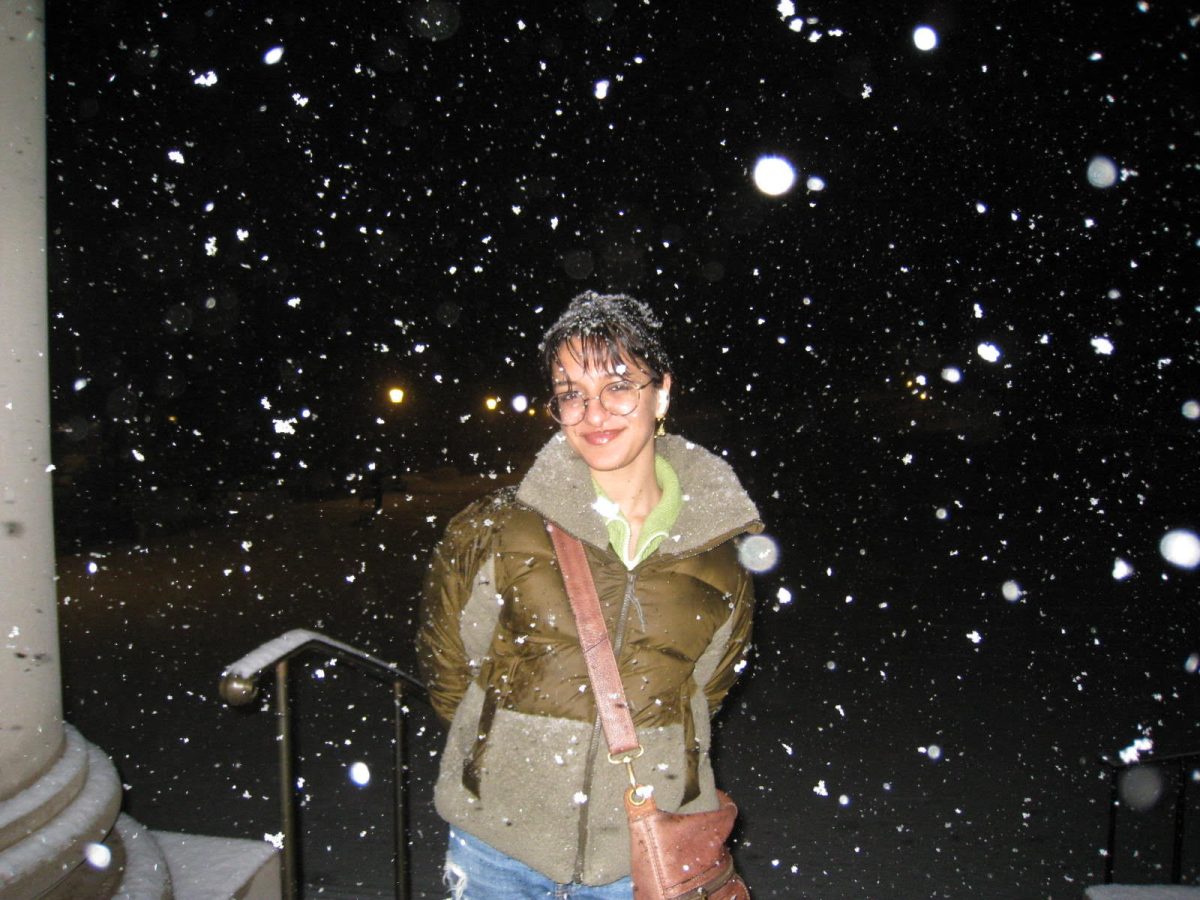The class of 2020 is graduating into a job market that has “literally imploded,” according to Director of the Career Center Don Kjelleren. “We have never seen the labor market unravel that fast as everyone dashed to comply with shelter in place,” he added.
Given this uncertainty, the watchword for this year’s seniors is adaptability. But the ongoing pandemic has stretched the limits of career planning. Not only are seniors contending with limited employment opportunities and postponed or canceled graduate programs, but many are also facing deepening financial pressures and increased familial responsibilities that have narrowed available career options.
A Record survey sent to the class of 2020 last week surveyed the class’s post-graduation plans. Of the 158 seniors who responded to the survey, for a response rate of 29 percent, 61 percent said that they planned on being employed full-time, while 32 percent said that they planned on continuing their job search. By comparison, in a survey of the class of 2018 conducted by the College in May 2018, 72 percent of seniors who responded said that they planned on working full-time after graduation. This is a statistically significant difference.
The survey also shed light on some of the factors influencing seniors’ career choices. 42 percent of respondents said that they were considering different post-graduation plans as a result of the economic downturn, and 10 percent said that they were considering different plans as a result of increased familial responsibilities.

But these results only begin to illustrate some of the challenges that the class of 2020 now faces.
Reshaped graduate school programs
For one, although many seniors who planned on attending graduate school in the fall will still be able to matriculate, they are finding that the educational opportunities they had originally imagined for themselves have fallen short.
Oliver Yang ’20, a chemistry major who is looking into a career in teaching, was accepted to the Stanford Teacher Education Program (STEP) in January. According to Yang, the accelerated one-year master’s program includes an experiential component, which involves substantial teaching opportunities at local middle schools and high schools.
But as schools in California consider a socially distanced fall, “some of the faculty have expressed concerns about [whether] they have to then shift the [STEP] curriculum. Like, how would it look like exactly being a teacher?” Yang said.
More concerning for Yang is the loss of teaching time. “As someone who wants to become a teacher, I think it’s just so important to be in the classroom,” Yang said. “That’s the real practical experience that you want.”
Like Yang, Tania Calle ’20 also plans on pursuing a master’s degree. She was awarded the Herschel Smith Fellowship from the College, which would fully fund her Master of Philosophy in public health at the University of Cambridge.
It’s uncertain whether Cambridge will hold on-campus classes in the fall, but Calle expressed doubt that her program would continue as usual. “For me, that’s frankly really hard to imagine,” Calle said. “The University of California schools will be doing mostly remote classes [and] Harvard Medical School will probably be doing their fall semester remotely.”
For Calle, studying on Cambridge’s storied campus has particular significance to her. “To join that four percent of Latinas that have a master’s degree is incredible,” she said. “A lot of my goal [in] going [to Cambridge] is to increase visibility around Latinidad and in scholarship and our interaction with Cambridge.”
“I feel like that’s something that would become challenging within the constraints of a remote program,” she added.
However, Calle emphasized her optimism that these opportunities might be available again in the future.
Obstacles, successes in job searches
Just as graduate schools are accounting for the possibility of continued social distancing policies, so too are offices across the U.S.
Vincent Gudenus ’20, who will be working at Quorum, a software startup in Washington D.C., said that he will be starting his position remotely in June. “I’m essentially starting from my living room in June,” he said. “It’s obviously unclear when I’m going to be starting in the office again.”
However, given the virtual start, Gudenus said that he feels fortunate to already be familiar with the team, having interned at the startup his sophomore summer.
“I think one good thing is I already know the company a little bit at least, and I already know some people there, so it’ll make it easier to start,” he said. “But I can imagine that for people who are starting virtually and don’t know anything about the company they’re joining, it’ll be even more difficult.”
Though Gudenus now has a position secured at Quorum, his plans had not yet solidified in January when he received his offer, in part due to uncertainty over his work authorization application as an international student from Austria. These concerns were heightened by the travel restrictions implemented during the early stages of the pandemic.
“There was quite a lot of worry amongst international students actually, because there could have been delays with the government processing these work authorization applications,” Gudenus said. “I was quite worried about that because it took a long time for the government to process [my application]. I didn’t really know what was going to happen.”
While Gudenus and Yang plan on moving forward with their original post-graduation plans, postponed fellowships for others have meant starting from scratch, an uncertainty that has only been intensified by the beleaguered job market.
Emma Ticknor ’20 is currently at home in Madison, N.J. while she explores her next steps. An environmental studies and American studies double major, she originally planned on joining AmeriCorps, a volunteer program administered by the federal government which places members in public service positions and funds their housing and living costs.
But the program has been indefinitely postponed, and there’s no guarantee of when service trips might resume. “So now I kind of feel like I’m just going to skip that part of the plan and just go straight into a long-term journey,” Ticknor said.
She now hopes to work in environmental justice, a career path that she sees as the intersection of her two majors. “I’ve been looking at some advocacy groups that do political lobbying on environmental justice issues,” she said. “Like nonprofit environmental consulting groups that do work with the EPA and crunch numbers for them, and then produce reports and policy memos kind of encouraging the things that need to be done to rectify those environmental injustices.”
Ticknor has found that most private non-profits aren’t hiring while government agencies still are. The reduction in the number of organizations actively hiring has meant that the application process for the positions that are open is more competitive, according to Ticknor. “These entry level positions are getting applications from people who are way overqualified,” she said. ”So me being an actual entry level person doesn’t really stand a chance.”
Despite the difficulties she faces, Ticknor said that she remains hopeful, emphasizing how instrumental the College’s alumni community has been in her job search. “I speak to an alum almost every single day,” she said. “It’s really nice that people are so willing to talk and even if they can’t help me at their particular organization, they almost always follow up with a link or a job posting or send me to the next Williams connection that they know.”
Gudenus was similarly encouraged by interactions with supportive alumni. “I’ve found that alumni are especially helpful during this time,” he said. “I received a lot of sympathy from alumni for, you know, the fact that senior spring was canceled.”
Increased financial pressure, familial responsibilities
As Ticknor continues her job search, uncertainty in her job security has led her to work part-time. “I’m working as a barista this summer, which I hadn’t really been planning on. And I think that if there were more jobs available right now, I think I would focus all of my time on just finding a job,” Ticknor said. “I’m working at this part-time job to just get like a little bit of spending money to tide me over until I can actually figure something out.”
Financial security has also factored into Tiffani Castro ’20’s post-graduation plans. She previously planned on joining a teaching fellowship program, Teach Minnesota, before it was postponed. The postponement gave her time to reevaluate her options.
As Castro reconsidered her choice to join Teach Minnesota given the pandemic, she realized that the cost of the program would be prohibitive. “So it was kind of a blessing in disguise, because the cost of [the program] was becoming more and more pressure,” Castro said. “It just led me to apply to other fellowships, which I still haven’t heard from.”
On top of these financial considerations, Castro has had to take into account her family responsibilities. “My dad had a huge medical issue that had happened. It was really, really bad. Because of that I’m still taking care of my dad, the whole family’s taking care of him,” she said.
Her father’s medical issue was not directly related to the pandemic, but hospitals overburdened with COVID-19 patients in her area only worsened the situation for Castro’s family. “We took him to three different hospitals within a span of three days,” she said.
As the pandemic stretches healthcare resources around Castro’s family, she said that she wants to be near her father. “He’s getting better. He has an appetite back,” Castro said. “But we don’t know how long-term it’s going to be. And because of that, I don’t think it’s wise for me to leave California.”








